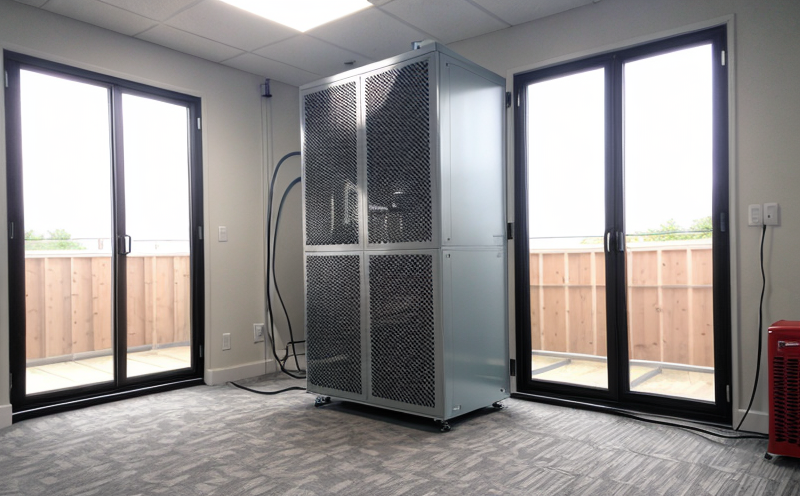Indoor Airflow Ventilation Performance Testing
Understanding and ensuring proper indoor airflow ventilation performance is crucial in maintaining a healthy and comfortable environment within commercial, residential, and industrial spaces. The HVAC equipment that supports this critical function must meet stringent standards to ensure optimal performance under various conditions.
The testing of indoor airflow ventilation involves several key aspects including the measurement of air velocity, volume flow rates, and pressure differentials. This ensures that the HVAC system is capable of providing adequate fresh air while minimizing energy consumption and preventing contaminants from entering the building. The process also includes assessing the distribution of air throughout the space to ensure uniformity.
Our testing methodology adheres to international standards such as ASHRAE, ISO, and EN, which provide guidelines for acceptable performance levels. Compliance with these standards is essential to meet local regulations and improve indoor environmental quality (IEQ). By conducting thorough airflow testing, we can identify any inefficiencies in the system that may lead to poor air quality or excessive energy consumption.
The testing process typically involves detailed preparation of the specimen. This includes ensuring all relevant components are installed correctly according to manufacturer specifications and local codes. Once prepared, our state-of-the-art equipment is used to measure various parameters such as static pressure, total pressure, and differential pressures across different sections of the ductwork.
Our team of experts uses highly sophisticated instruments to capture precise measurements that reflect real-world operating conditions. This allows us to simulate typical usage scenarios so that we can accurately assess how well the system performs under actual field conditions. The data collected during these tests provides valuable insights into any areas where improvements could be made, whether it's enhancing energy efficiency or improving overall indoor air quality.
Industry Applications
- Commercial buildings seeking to comply with local regulations on IAQ and energy efficiency
- Residential properties aiming for improved comfort and reduced utility costs
- Industrial facilities ensuring compliance with OSHA standards regarding worker safety and health
Competitive Advantage and Market Impact
- Our testing ensures that clients comply with the latest industry standards, giving them a competitive edge in terms of regulatory compliance.
- By providing detailed reports on potential improvements, we help companies stay ahead of competitors by optimizing their HVAC systems for both performance and cost-effectiveness.





